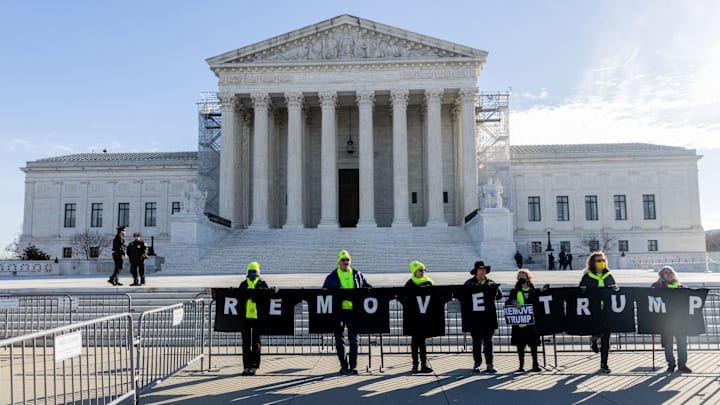Donald Trump has been indicted for 91 felony counts, as well as facing multiple civil cases in courts across the United States. While there are miscellaneous charges associated with fraud and sexual misconduct, the vast majority of these cases have to do with questions of election interference and insurrection, due to his actions after the 2020 election.
In August 2023, a group of Colorado voters argued that Donald Trump should not be allowed on the ballot for his 2024 presidential campaign. By their argument, his actions (and those of his supporters) on January 6, 2021 should block him from running for office due to Section 3 of the 14th Amendment.
While these are legal issues, the case has become the subject of popular scrutiny, because President Trump is such a famous figure. He is the subject of very personal, emotional reactions on both sides. As such, ordinary people are deeply invested in the results of this case.
However, the average person does not have familiarity with the legal system and its processes, much less the complexities of constitutional law. Because of this, it is important to do some research into what has happened so far, how to parse through the legalese, and what it means for the future.
As a warning, this is a deep dive. There are certainly easier ways to learn about Trump's eligibility for the 2024 election. However, we feel that it is important to know what is actually being said and what it means. By reading this article, you should understand the case as well as possible without being a legal scholar yourself.
In order to make sure this information is as accurate as possible, I have been aided by Dr. Albert P. Melone, a legal scholar and Professor Emeritus at Southern Illinois University Carbondale. He is the author of reputed texts such as Donald J. Trump and the Politics of Mass Society and Political Culture in the Age of Trump, as well as co-authoring The American Legal System, 2nd Edition with Allan Karnes and Researching Constitutional Law, 4th Edition with Marc Georges Pufong.
What you need to know about Anderson v. Trump
- Background on the 14th Amendment
- How has Donald Trump's case proceeded?
- Explaining the legal complexities of Section 3
- What parts of the Constitution are most important here?
- Are there precedents to fall back on?
- The major points of controversy, answered
- How might politics effect the Supreme Court's decision?
- What will this mean for the future?
- Critical Sources/Further Reading
Slide 2 explains what the 14th Amendment is and how the case against Donald Trump has developed prior to the Supreme Court.
